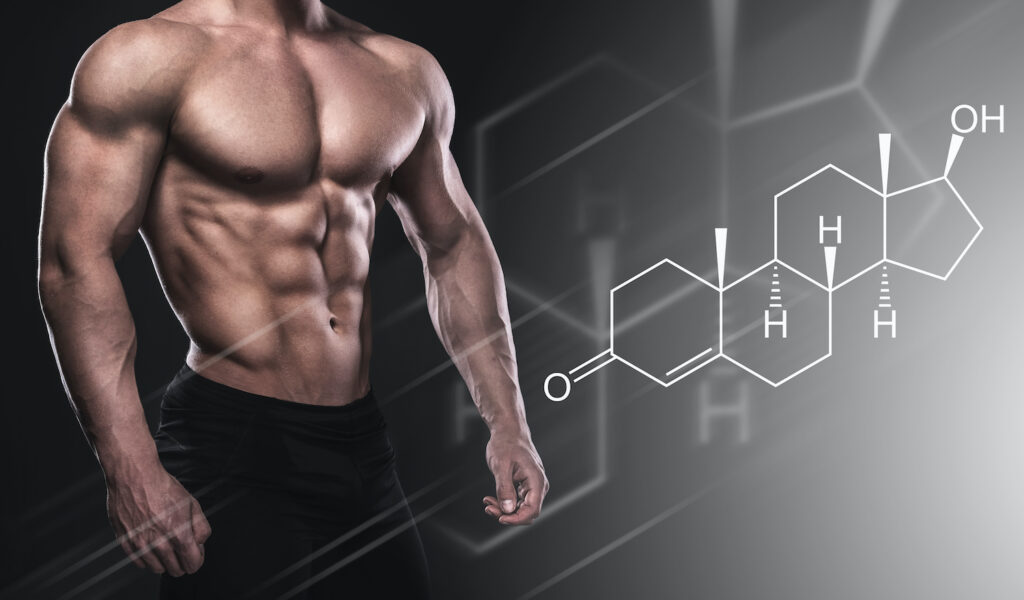Sexual vitality is an important aspect of men’s overall health and well-being. Understanding the factors that can impact sexual vitality is crucial for promoting and maintaining good sexual health.
In this article, we will explore some of the key factors that influence sexual vitality in men, including the causes of erectile dysfunction, lifestyle choices, hormonal balance, and age-related changes.
Erectile dysfunction, often referred to as ED, is one common factor that can impact sexual vitality in men. It refers to the consistent inability to achieve or maintain an erection that is firm enough for sexual intercourse.
ED can have both physical and psychological causes, ranging from underlying health conditions such as diabetes and heart disease to stress, anxiety, and depression.
Lifestyle choices also play a significant role in determining sexual health in men. Factors such as stress, poor diet, lack of exercise, and inadequate sleep can all impact sexual vigor.
Chronic stress, for instance, can lead to a decrease in libido and contribute to erectile dysfunction. On the other hand, adopting a healthy diet, engaging in regular exercise, and prioritizing sufficient sleep can help improve sexual stamina and performance.
Hormonal imbalance is another factor that can impact sexual performance. Testosterone, the primary male sex hormone, plays a crucial role in regulating sexual desire and function.
Imbalances in testosterone levels can lead to a decrease in libido and ED. Hormone optimization therapies, such as testosterone therapy and peptide therapy, can help men analyze and optimize their hormone levels to enhance their sexual performance.
As men age, they may experience changes in sexual function. Age-related factors, including hormonal fluctuations, reduced blood flow, and underlying health conditions, can influence sexual vitality.
While it is natural for sexual function to change with age, proactive measures can be taken to optimize sexual health and maintain sexual vigor as men grow older.
By exploring these factors that impact sexual vitality, we can gain valuable insights into how to improve and maintain sexual health in men. By making positive lifestyle choices, managing stress, optimizing hormone levels, and addressing age-related changes, men can promote their sexual well-being and enjoy a satisfying sex life.
Key Takeaways:
- Sexual vitality in men can be influenced by various factors, including lifestyle choices, hormonal balance, and age-related changes.
- Erectile dysfunction can be caused by both physical and psychological factors.
- Managing stress, adopting a healthy diet, engaging in regular exercise, and prioritizing sufficient sleep can enhance sexual vigor
- Hormone optimization therapies can help men improve their sexual performance by analyzing and optimizing hormone levels.
- While age-related changes may affect sexual function, proactive measures can be taken to maintain sexual vitality.
Lifestyle Factors Affecting Male Sexual Vigor
Lifestyle choices play a crucial role in determining male sexual vigor and overall well-being. Let’s explore how different factors, such as stress, diet, exercise, and sleep, can affect male sexual health.
1. Stress and Sexual Vitality
Stress has a significant impact on sexual vitality in men. High levels of stress can lead to decreased libido and erectile dysfunction.
When the body is under stress, it produces cortisol, which can interfere with the production of testosterone, the hormone responsible for sexual desire. Additionally, stress can affect overall mood and mental well-being, further contributing to sexual difficulties.
“Chronic stress can interfere with the body’s hormonal balance and impede sexual performance,” says Dr. John Richards, a renowned expert in sexual health.
2. Diet and Sexual Stamina
Your diet plays a crucial role in promoting sexual stamina and vigor. Including nitric oxide-boosting foods in your diet can enhance blood flow to the genital area, aiding in achieving and maintaining an erection.
Foods rich in antioxidants, such as fruits and vegetables, help combat oxidative stress and promote overall cardiovascular health, benefiting sexual function.
“A diet rich in lean proteins, whole grains, fruits, and vegetables can support sexual stamina and overall health,” advises nutritionist Sarah Thompson.
3. Exercise and Male Sexual Health
Regular exercise is essential for maintaining male sexual health. Engaging in physical activity promotes good cardiovascular health, contributing to improved blood circulation throughout the body, including the genital area.
Exercise also helps to reduce stress levels, increase energy levels, and boost self-confidence, all of which positively impact sexual vitality.
“Incorporating exercises that target the pelvic floor muscles, such as Kegels, can enhance sexual function and improve orgasm control,” suggests Dr. Michael Davis, a renowned sex therapist.
4. Sleep and Male Libido
Sleep plays a vital role in male libido and sexual performance. Inadequate sleep can disrupt hormone production, including testosterone, leading to decreased sexual desire. Quality sleep is crucial for restoring energy levels, reducing stress, and supporting overall hormonal balance, all of which contribute to a healthy libido.
“Prioritizing adequate sleep can have a significant impact on male sexual health,” emphasizes Dr. Jennifer Reynolds, a sleep expert.

| Lifestyle Factors | Impact on Male Sexual Vigor |
|---|---|
| Stress | Decreased libido and erectile dysfunction |
| Diet | Promotes sexual stamina and cardiovascular health |
| Exercise | Improves blood circulation and reduces stress |
| Sleep | Supports hormonal balance and a healthy libido |
Hormonal Imbalance and Sexual Performance
Hormonal balance plays a vital role in determining sexual performance in men. The primary male sex hormone, testosterone, is instrumental in regulating sexual desire and function. When there is an imbalance in testosterone levels, it can lead to decreased libido and erectile dysfunction, affecting sexual performance.
However, testosterone is not the only hormone that impacts sexual health in men. Other hormones, such as thyroid hormones and dihydrotestosterone (DHT), also play a significant role.
Thyroid hormones are responsible for regulating metabolism, energy levels, and reproductive function, while DHT contributes to the development and maintenance of sexual characteristics.
To enhance sexual performance, addressing hormonal imbalance is crucial. There are hormone optimization therapies available, including testosterone therapy and peptide therapy, which help men analyze and optimize their hormone levels for improved sexual performance.
The Role of Testosterone in Sexual Performance
Testosterone is essential for maintaining sexual desire, arousal, and overall sexual function in men. It enhances libido, promotes the health and function of reproductive organs, and contributes to the production of sperm.
Imbalances in testosterone levels can arise due to various factors, including age, stress, certain medical conditions, and lifestyle choices. When testosterone levels are too low, it can lead to a decline in sexual desire, difficulties with achieving or maintaining an erection, and decreased overall sexual satisfaction.
Conversely, high levels of testosterone can also have negative effects on sexual performance, leading to increased aggression, mood swings, and potential prostate problems.
By understanding the role of testosterone and other hormones in sexual performance, men can take proactive steps to optimize their hormonal balance and enhance their sexual health.
| Hormone | Function |
|---|---|
| Testosterone | Regulates sexual desire, function, and the development of sexual characteristics |
| Thyroid hormones | Regulate metabolism, energy levels, and reproductive function |
| Dihydrotestosterone (DHT) | Contributes to the development and maintenance of sexual characteristics |
Optimizing hormonal balance through appropriate therapies can help men overcome hormonal imbalances and improve their sexual performance. It is important to consult with a healthcare professional specializing in hormone optimization to ensure safe and effective treatment.

Aging and Male Sexual Function
Age-related changes can have a significant impact on male sexual function. As men age, they may experience a decline in sexual desire, longer time required to achieve an erection, and difficulties in maintaining an erection.
These changes are attributed to hormonal fluctuations, reduced blood flow to the genital area, and underlying health conditions.
Understanding and addressing these age-related changes is crucial for men to maintain sexual vitality as they grow older. It’s important to note that age-related changes do not necessarily equate to a decline in sexual function. With proactive measures, men can optimize their sexual health, even as they age.
The Effects of Aging on Male Sexual Function
1. Decreased Sexual Desire: Many men experience a decrease in sexual desire as they get older. This can be due to hormonal changes, relationship factors, or age-related health conditions.
2. Longer Time to Achieve Erection: Aging can lead to a longer time required to achieve an erection. This is often caused by decreased blood flow to the penis, which is necessary for achieving and maintaining an erection.
3. Difficulties in Maintaining Erection: As men age, they may find it more challenging to maintain an erection during sexual activity. This can be a result of reduced blood flow, changes in hormone levels, or underlying health conditions.
Addressing Age-Related Changes in Male Sexual Function
To optimize sexual health in older men, it’s important to take proactive steps. Here are a few strategies that can help:
- Healthy Lifestyle: Maintaining a healthy lifestyle is crucial for overall well-being, including sexual health. This includes regular exercise, a balanced diet, managing stress, and adequate sleep.
- Open Communication: Discussing any concerns or issues with a healthcare professional or partner can help address age-related changes in sexual function and find appropriate solutions.
- Medical Interventions: There are various medical interventions available to address age-related changes in male sexual function. This can include hormone therapies, medications for erectile dysfunction, or other treatments recommended by healthcare professionals.
Aging and Sexual Satisfaction
“While age-related changes in male sexual function are common, it’s important to remember that sexual satisfaction is not solely determined by physical performance. Emotional intimacy, communication, and overall relationship satisfaction also play a significant role in sexual well-being.”
– Dr. Emma Thompson, Sexual Health Specialist
| Age-Related Changes | Effect on Sexual Function |
|---|---|
| Decreased sexual desire | Can lead to reduced libido and lower sexual motivation |
| Longer time to achieve an erection | May require more stimulation and foreplay to achieve and maintain an erection |
| Difficulties in maintaining erection | May result in shorter durations of erection or difficulty in sustaining it during sexual activity |
| Hormonal fluctuations | Can contribute to changes in sexual function and desire |
| Reduced blood flow to the genital area | Affects erectile function and overall sexual performance |
| Underlying health conditions | Medical conditions such as diabetes, heart disease, or neurological disorders can impact sexual function |
Conclusion
Sexual vitality in men is influenced by various factors that impact male sexual health and maintaining sexual vigor. By understanding and addressing these factors, men can promote and maintain their sexual well-being.
Lifestyle choices play a significant role in determining sexual vitality. Managing stress, maintaining a healthy diet, engaging in regular exercise, and prioritizing adequate sleep are all key factors in enhancing sexual vigor. By making positive lifestyle choices, men can optimize their sexual health and performance.
In addition to lifestyle choices, hormonal balance is also crucial for male sexual health. Hormonal optimization therapies, such as testosterone therapy, can help men improve their sexual performance by analyzing and optimizing hormone levels.
Furthermore, it is important to note that age-related changes do not necessarily lead to a decline in sexual function. Proactive measures can be taken to maintain sexual vitality as men grow older. By understanding and addressing the factors influencing sexual vitality, men can prioritize their sexual health and well-being at any age.
FAQ
What factors impact sexual vitality in men?
Factors that can impact sexual vitality in men include erectile dysfunction, lifestyle choices, hormonal imbalances, and age-related changes.
How do lifestyle choices affect male sexual vigor?
Lifestyle choices such as stress, diet, exercise, and sleep can have an impact on male sexual vigor. Stress can decrease libido and lead to erectile dysfunction, while a healthy diet and regular exercise promote sexual stamina. Adequate sleep is also crucial for a healthy libido.
What role does hormonal balance play in sexual performance?
Hormonal balance, particularly testosterone levels, is crucial for optimal sexual performance in men. Imbalances in testosterone can lead to decreased libido and erectile dysfunction. Other hormones, such as thyroid hormones and DHT, also contribute to sexual health.
How does aging affect male sexual function?
As men age, they may experience decreased sexual desire, longer time to achieve an erection, and difficulties maintaining an erection. These changes are attributed to hormonal fluctuations, reduced blood flow to the genital area, and underlying health conditions. However, proactive measures can be taken to optimize sexual health in older men.
How can men maintain sexual vitality?
To maintain sexual vitality, men can make positive lifestyle choices, manage stress, maintain a healthy diet, engage in regular exercise, and prioritize adequate sleep. Hormonal optimization therapies can also help improve sexual performance. Proactive measures can be taken to maintain sexual vitality as men age.




